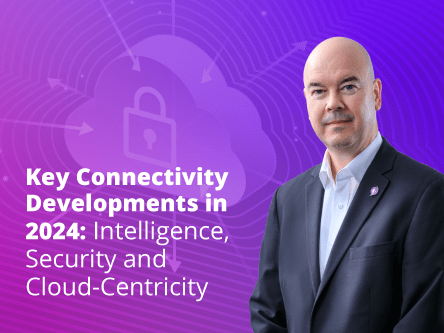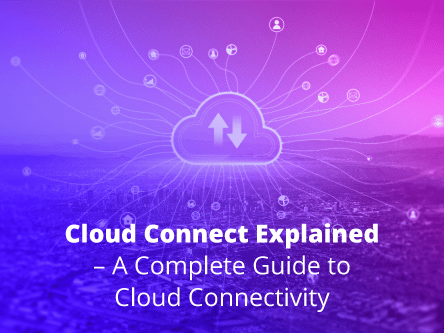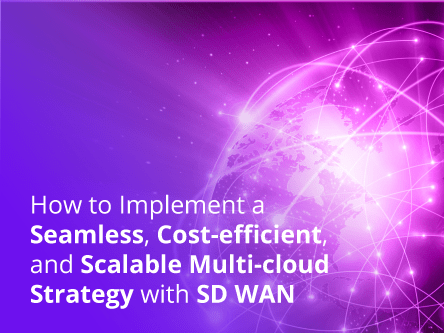A decade-plus ago, companies that provided managed network services were enjoying their niche position in a world where cloud computing had not yet gained full traction. Fast forward to 2021: with the sudden eruption of the global pandemic, many MSPs have joined the crowd, fighting for a piece of the pie. However, the landscape is no longer what it was in 2010.
With the massive global demand for bandwidth in the Work-from-Anywhere era, MSPs are expected to not only provide the right mix of connectivity, security and productivity solutions. They are often required to take the time to grasp each customer’s commercial and technical constraints as well.
Failing to take the time and effort to ensure top-flight customer experience can result in fast attrition. Businesses today are spoilt for choice when any vendor is not keeping up with rising expectations and ultra-fluid market shifts.
Fragmentation and differentiation challenges
Unlike in the past when MSPs called the shots when educating potential customers, cloud adoption is now a given amongst organisations. These same MSPs are struggling to differentiate their products and services against stiff competition.
Also, amidst the fast-paced digital transformation landscape caused by the pandemic, cybercriminal activity has skyrocketed. In line with that, governments have enacted strict laws to protect data privacy, leading to added layers of complexities to organisational compliance requirements.
Needless to say, a fragmented MSP ecosystem has resulted in a many smaller vendors being squeezed for price and differentiated service. They are usually too small to invest heavily on hardware to scale along with the market. Or they may be too vested in legacy business models to keep up with the complexities of the pandemic-ruffled customers. Also, deciding between outsourcing and investing in infrastructure is difficult amid all the pandemic uncertainty.
With the MSP market worth an estimated US$170bn and growing, what can the smaller vendors do to stay relevant and fighting instead of throwing-in the towel?
The white-label approach to MSP scalability
By tapping a global connectivity ecosystem, MSPs are able to efficiently add new networking capabilities to its service portfolio, expand existing customer relationships, and monetise new cloud opportunities. Using a white-label solution, MSPs can satisfy all its customers’ connectivity needs without constantly investing in its own data centres and infrastructure. On-demand connectivity is always available via a self-service platform with simple configuration.
Here is a summary of how struggling MSPs can reap the same benefits while differentiating their businesses with their own intellectual properties:
- New revenue streams – Infiny enables MSPs to rapidly monetise cloud connectivity with an OPEX-based model
- Increased stickiness – Using Infiny as a white-label solution, MSPs can maintain control of its customer relationships while increasing customer satisfaction
- On-demand ethernet – Infiny offers on-demand ethernet services which include interconnection between data centres and direct access to cloud and internet exchanges.
- Expanded service portfolio – MSPs can expand their portfolio to include connectivity as well as using it to enhance their on-demand ethernet services core (differentiated) services.
- Seamless integration – Service wrapped with Infiny to deliver a seamless one-stop shop for network connectivity.
- Click-to-connect provisioning – Scalable bandwidth and flexible service duration enables MSPs to offer simple provisioning of services that can be turned up or down when needed.
Is it really that simple?
Before the pandemic, many MSPs had been competing on price rather than value. It was a tough road to gain customer loyalty, let alone profitability. Does adopting a NaaS platform like Infiny really help the business?
Taking today’s MSP business challenges point by point, the white-labeling approach should be the logical move to:
- Rapidly monetize the new connectivity and services without needing to build infrastructure from scratch, and with full control of branding and service assurance.
- Free up internal resources to focus on core business strengths and intellectual properties, thereby improving differentiation and breaking out of untenable price wars.
- Gain customer stickiness by having agile, scalable networking on tap to meet changing and rising customer needs.
- Ultimately, grow from strength to strength with loyal customers and excellent service experience.
In a cloud-first world, it really can be as simple for MSPs to adopt a platform like Infiny through a partner program to remain relevant and sustainable in the long run.







